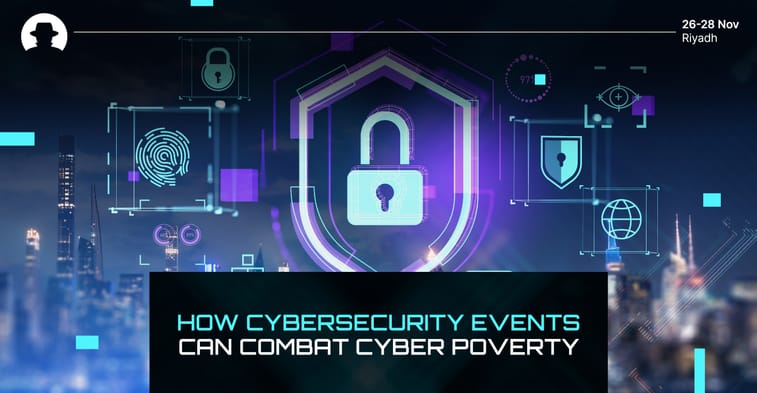
When privacy creates blind spots: the exploitation of privacy-first tech
New research reveals how privacy-first technologies are creating fraud blind spots, as AI-driven attacks scale faster than detection capabilities.
Read More
Cyber poverty is a term that refers to a state in which organisations, or any entities, don’t have adequate resources, influence, or capabilities to maintain a level of cybersecurity that sufficiently protects them (and every other entity they come into contact with) in the current threat landscape.
A cyber-poor organisation might have insufficient budgets to cover cybersecurity costs, for example. They might lack cybersecurity expertise within their teams, and have limited capabilities to implement effective cybersecurity practices. And often, they don’t have the influence over their supply chains to ensure tight security at every step.
Following the publication of a recent report by the World Economic Forum, let’s take a look at the state of cyber poverty right now; and consider how large-scale cybersecurity events and conferences can contribute to increased equity worldwide.
The World Economic Forum’s Global Cybersecurity Outlook 2024 insight report urged for a systemic solution to address the inequity in capacity for cyber resilience across organisations and countries.
The inequity is growing because of rapid growth in digital adoption and the related expansion of the cybersecurity economy, which grew twice as fast as the world economy in 2022. In 2023, it grew four times faster; and while organisations and governments are increasing their investment in cyber resilience, development is uneven.
Organisations reporting that they’re able to maintain minimum viable cyber resilience are down by 31% since 2022, and the gap between those with cyber resilience and those without continues to widen. Organisations at the lower end of that gap find it impossible to keep up with technological developments and the evolution of the threat landscape, so they’re falling further behind at a worrying rate.
This isn’t just bad for those organisations, though – in a highly complex and interconnected sector, a lack of cyber resilience within some organisations can quickly compromise the integrity of the whole ecosystem.
Other notable inequity findings from the WE Forum report include:
When we interviewed Ramy Houssaini (Chief Cyber & Technology Risk Officer, & Group Privacy Officer, at BNP Paribas) about the organisation he co-founded in 2023, the Cyber Poverty Line Institute, we asked him what he thinks cybersecurity events like Black Hat MEA could do to contribute to reducing the imbalances in cyber.
He said:
“Black Hat events provide invaluable opportunities for cybersecurity professionals to exchange cutting-edge knowledge and insights, enhancing their expertise and staying abreast of the latest threats and solutions.
“They facilitate critical networking and collaboration among industry leaders, which can drive innovation and improve cybersecurity practices across organisations. By spotlighting emerging threats and vulnerabilities, Black Hat events help raise awareness and drive proactive measures to strengthen global cybersecurity resilience.
“Specifically, events like Black Hat MEA are crucial in addressing social imbalances in cybersecurity by facilitating knowledge sharing, improving resource access, and fostering a more inclusive cyber community.”
To do that, Ramy went on, large-scale cybersecurity conferences can:
By bringing global attention to these inequities and facilitating collaboration towards actionable solutions, industry conferences have a valuable role to play in closing the cyber poverty gap.
Join us at Black Hat MEA 2024 and discover how to improve your organisation’s cyber resilience.
Join the newsletter to receive the latest updates in your inbox.

New research reveals how privacy-first technologies are creating fraud blind spots, as AI-driven attacks scale faster than detection capabilities.
Read More
Cybersecurity founders share how Black Hat MEA helps them test ideas, prove product value, and grow their business.
Read More
Cybersecurity is now a leading barrier to financial innovation. New research explains why fraud, legacy systems and risk are slowing payments progress.
Read More